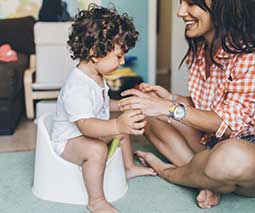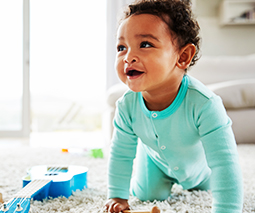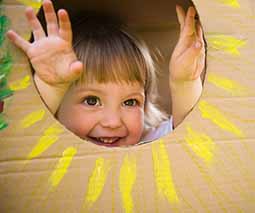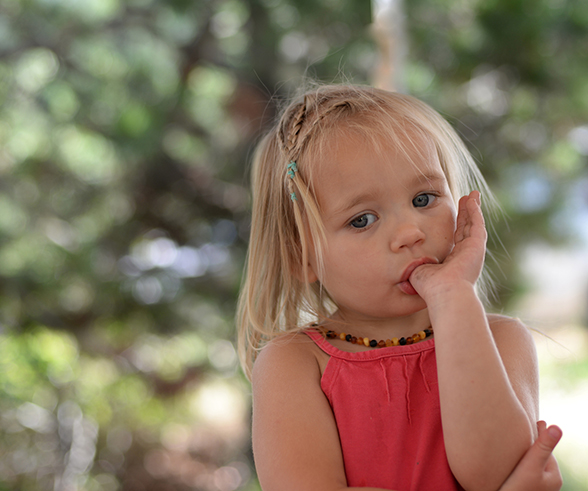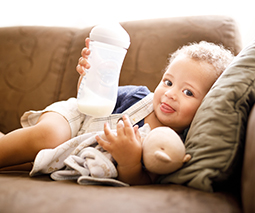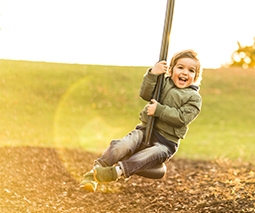What to do when your toddler refuses to poo
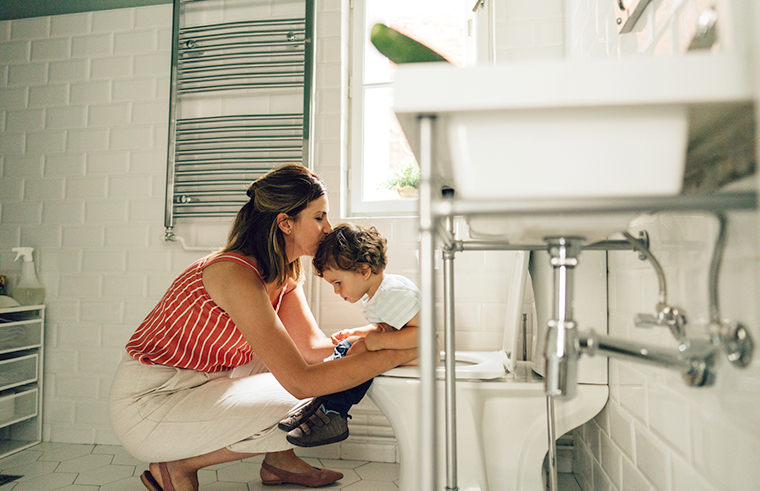
Toilet training can be tricky and messy, but it can also result in another problem altogether – a toddler who suddenly decides they’re going to simply refuse to poo.
Why it happens
The most common reason why young children will start refusing to poo is because they’ve had a painful experience at some point and are scared of it happening again. A traumatic toilet training experience can also be to blame, accidents can make them feel ashamed or upset, leading to the act itself then becoming too overwhelming and they end up trying to avoid it altogether. Or they just don’t like the feeling of pooing on the toilet compared with in a nappy.
In some cases, gastrointestinal issues like coeliac disease, or other medical conditions such as cystic fibrosis or thyroid disease, can also cause constipation which is then mistaken as poo refusal.
The trouble with not pooing
The problem with holding poo in, is that water from a stool that’s not passed becomes reabsorbed by the bowel which makes it go hard. As more poo is created, the stool also becomes bigger, meaning that when the child does eventually go, Number Two is likely going to be firmer and larger than a regular poo. This can cause a fissure, tearing or bleeding that is painful and a bit scary. And then, of course, this event then feeds the fear of pooing, creating a vicious cycle that can be tricky to break.
Constipation caused from poo refusal can also result in painful stomach cramps, poor sleep and general irritability or challenging behaviour.
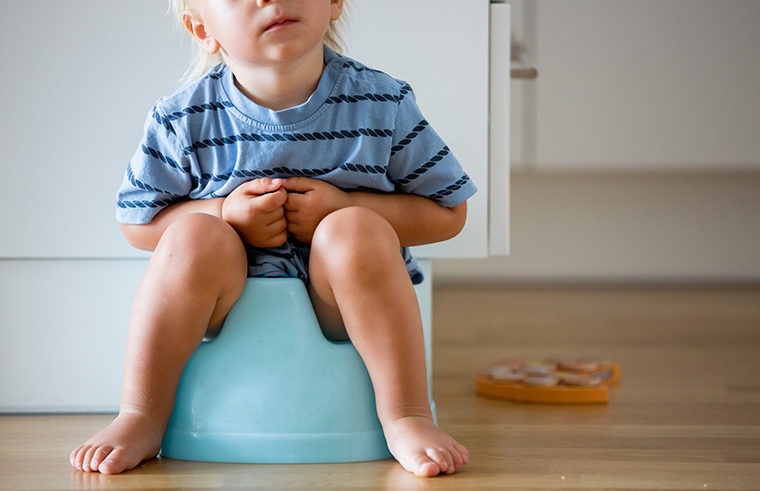
What you can do
If your toddler doesn’t want to poo, you can try these tips for getting things moving along:
- Check their diet – Make sure they’re drinking plenty of water and eating lots of vegetables and fruit to increase fibre and encourage soft stools that are easier to pass.
- Be patient and understanding – Let them know that it’s okay to poo and encourage them to simply try (rather than focusing on them actually doing one). This phase might take a while to pass so you’ll need to be patient too as berating them will only make things worse.
- Create a special poo time – Once a day put them on the toilet with entertainment such as books, toys or an iPad so they’re not afraid of sitting down and comfortable with the act. After dinner is usually a good time, and encourage them sit there for a while in case something happens (not just for five seconds).
- Talk about it – Read books about potty training and poo so the subject becomes normal and not so scary.
- Praise them when they go – You can opt for treats or sticker rewards, but a big high-five or hug and verbal praise can work wonders too, helping them to want to go again next time.
- Try a natural laxative – Prune, plum or pear juice can be effective, but be careful not to give them too much or stomach cramps and diarrhoea can occur.
- Get a doctor check-up – If the problem isn’t showing any signs of going away and there are no obvious reasons such as poor diet, then a check-up with your local GP is a good idea to rule out any medical issues and get additional advice.
Hang in there
While this might be a terribly challenging time for you and your toddler, hang in there because this tricky phase WILL pass eventually – just like their poo. And if you have any concerns about their health, please visit your doctor for advice.
 Need some more toilet training advice? Our Parent School toilet training experts can help. Click to find out more or book a one-on-one session.
Need some more toilet training advice? Our Parent School toilet training experts can help. Click to find out more or book a one-on-one session.
